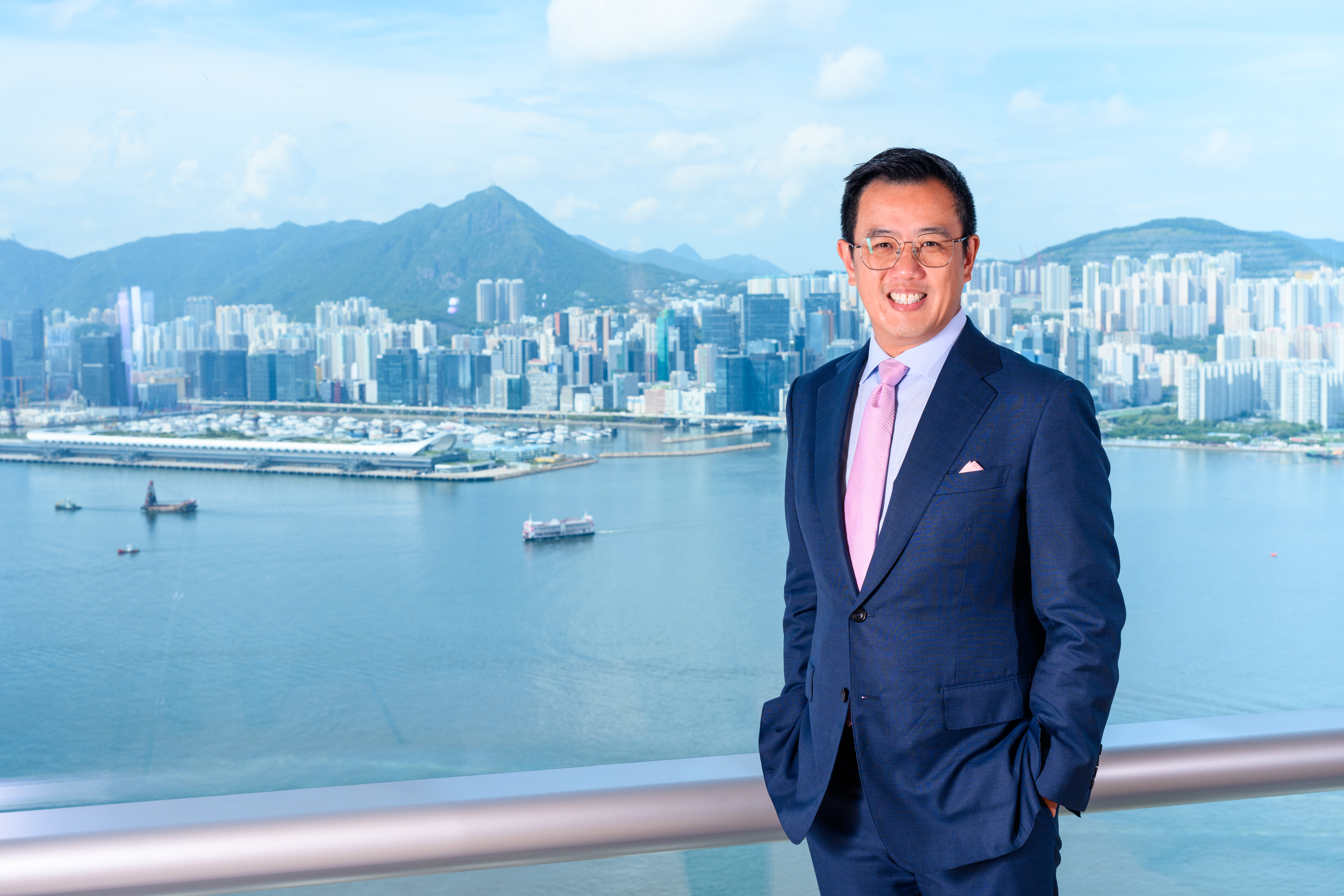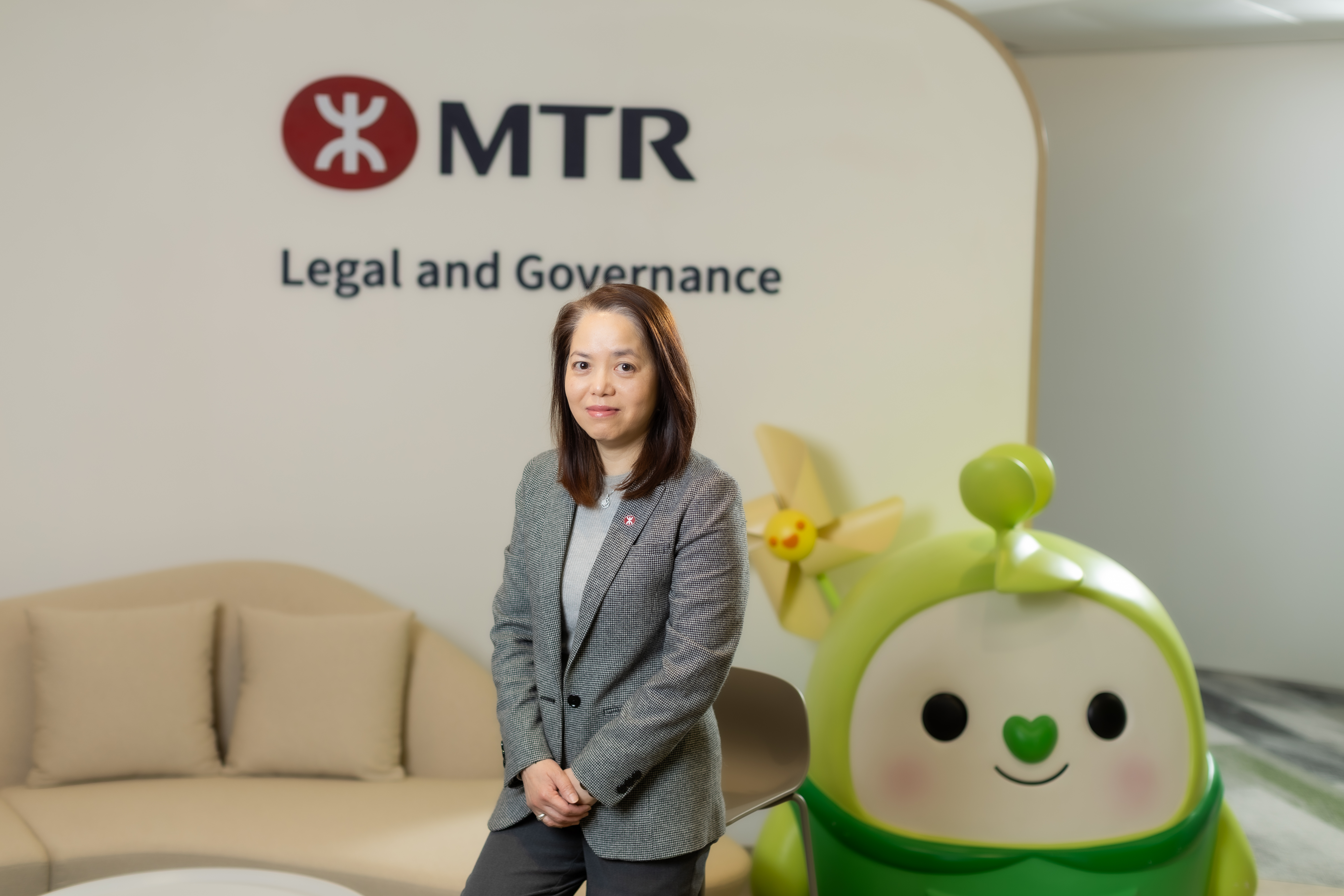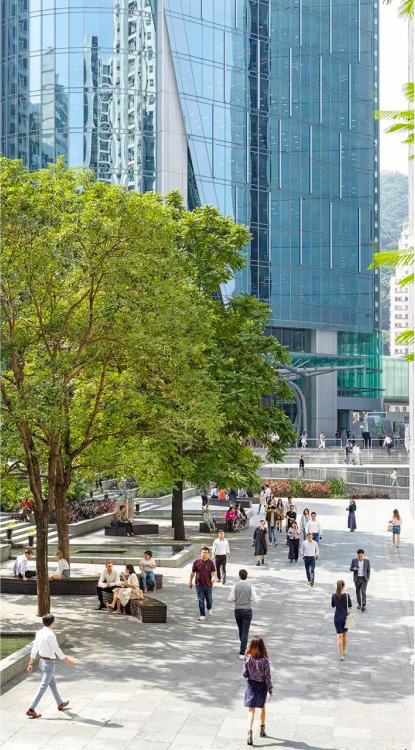Tenant Spotlight – How the Legal Profession Contributes to the ESG Space
18 Nov 2024

Our recent conversation with Roderick Lai, Partner at Eversheds Sutherland Hong Kong, shed light on the diverse role that law firms play in the ESG space. Roderick shares how Eversheds supports clients in navigating a wide range of issues, from trade sanctions and financing to employment considerations in their sustainability-related projects. He also discusses his journey with sustainability, highlighting both his personal experience and his corporate role as the partner sponsor for the firm’s sustainability initiatives.
As a law firm, what is Eversheds Sutherland’s role in sustainability?
Roderick:
Sustainability is a core area for Eversheds, driven by our stakeholders including clients, staff and surrounding communities. We have lawyers from our banking/finance, commercial, data and technology, disputes and employment teams advising clients on ESG-related issues. They are all part of our Asia ESG Committee, which, in addition to overseeing our client-facing work, also leads internal sustainability efforts.
On the client advisory side, we have been working in the renewable energy sector for 20-plus years, establishing ourselves as one of the most active practitioners in China – covering over two gigawatts of solar and wind power generation. This includes helping clients with everything from joint venture setup and project finance to structuring Power Purchase Agreements (PPAs). We also work on electricity interconnector projects — covering more than half of the market in Europe—and on EV transition. In addition, the firm’s purview includes advising on land rights, sustainable trade financing, including green loans and bonds, as well as important issues like modern slavery and diversity and inclusion. Our clients span a diverse group, from established banks to sustainability-focused start-ups.
We have found that no matter what clients want to do in this space, they always require legal advice. With this in mind, Eversheds sees ESG advisory as an opportunity for innovation and offers clients technology tools to meet their needs. These include a Diversity Database that serves as a resource on diversity statistics, and our Finance Handbook that provides access to a glossary of sustainable finance terms. In 2024, Eversheds was named one of Asia’s Top 15 ESG Law Firms (Asian Legal Business) in recognition of our work.
Tell us about your personal sustainability journey and how you have shaped the current practices at Eversheds.
Roderick:
As a father, I'm committed to ensuring my children inherit a world as close as possible to what I have experienced. Growing up in New Zealand, where the effects of climate change, like the increased risk of skin cancer from the sun, are very evident, has deeply influenced me. This first-hand exposure to climate impacts drove me to take on the role of partner sponsor for sustainability initiatives at Eversheds in Hong Kong.
As part of my role, I lead the firm’s Asia ESG Committee, made up of lawyers across all levels and disciplines. Committee members join voluntarily and are encouraged to exchange views on emerging issues and share how ESG is being integrated into their work. The committee follows through with all directives driven by the global ESG strategy team, including our firm-wide goal to achieve net-zero emissions by 2050, in accordance with our approved SBTi targets.
We also implement our own initiatives with local teams to make our offices more sustainable. For example, to address the fact that the convenience of easily accessible rubbish bins makes us less aware of the litter we create, colleagues agreed to take away all rubbish bins at individual desks. As they now need to leave their desks to dispose of something, they think twice before producing waste. Everyone wants to contribute, which is a great thing for the corporate culture.
As document generation is the bread and butter of our industry, one of our key initiatives is related to paper conservation in the form of drafting more e-contracts and exploring the possibility of using electronic business cards. Another effort is our monthly regional newsletter featuring sustainability events such as those organised by Swire Properties, sustainability tips as well as our progress on implementing relevant programmes and practices. To involve the larger community, we have also planned family activities such as one where we built a Christmas tree using upcycled plastic bottles. This event spread holiday cheer, promoting environmental values as part of a fun-filled social activity.

How do you engage with the GPP?
Roderick:
Swire Properties is very proactive in engaging with us through the GPP, providing comprehensive toolkits and solutions for managing our impacts. We have been an active participant in the GPP since 2019, when we moved to Taikoo Place. Our main environmental footprint involves energy use and waste generated from our office. To tackle waste, we participated in the Smart Waste Reduction Challenge and worked with Spare-It, the solution provider, to track our waste performance.
We are proud of the Gold Award we earned in the GPP Sustainable Office Operations Scheme last year – we see the GPP as a valuable framework for us to understand what more can be achieved as we strive to do even better in managing our footprint. The recognition from the GPP serves as an incentive and source of aspiration for our teams. We also use the information from the GPP to enhance our communications internally. Going forward, we hope to see more of these initiatives – workshops, friendly competitions, and messages for us to share across our offices.


Looking forward, how do you envision sustainability measures will develop? What positive impacts are corporates likely to have?
Roderick:
At the end of the day, the key to successfully implementing ESG is finding alignment and balance between the business imperative and sustainable practices. Governments are trying to do the right thing, but many sustainability measures, including banning single-use plastics or the transition to renewables, have both merits and drawbacks. What’s more, sustainability is challenging because of the complex world we live in, where businesses must face politics, sanctions, evolving regulations, and the rigidity of many existing supply chains. I believe we, as corporates, must do what we can and what we think is right at the time.
Despite the challenges in Hong Kong, including land constraints and other environmental concerns such as biodiversity loss, I’d like to see Hong Kong and the rest of Asia leap forward in renewable energy and waste management. Thanks to our breadth of services and geographic spread, Eversheds can be at the forefront of a number of fields and make a contribution. In partnership with the GPP, we will keep striving to reduce our environmental footprint and make a positive impact through our work.
Our partnership with Swire Properties represents an unusual win-win scenario, where it improves both our and the developer’s footprint and sustainability credentials in line with our goals.
The GPP is our flagship programme towards achieving our SD 2030 Strategy and longstanding commitment to fighting climate change, in joint efforts with our office tenants in Hong Kong and the Chinese Mainland. Learn more about the programme on the GPP Website.







